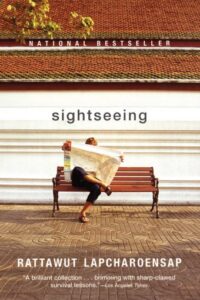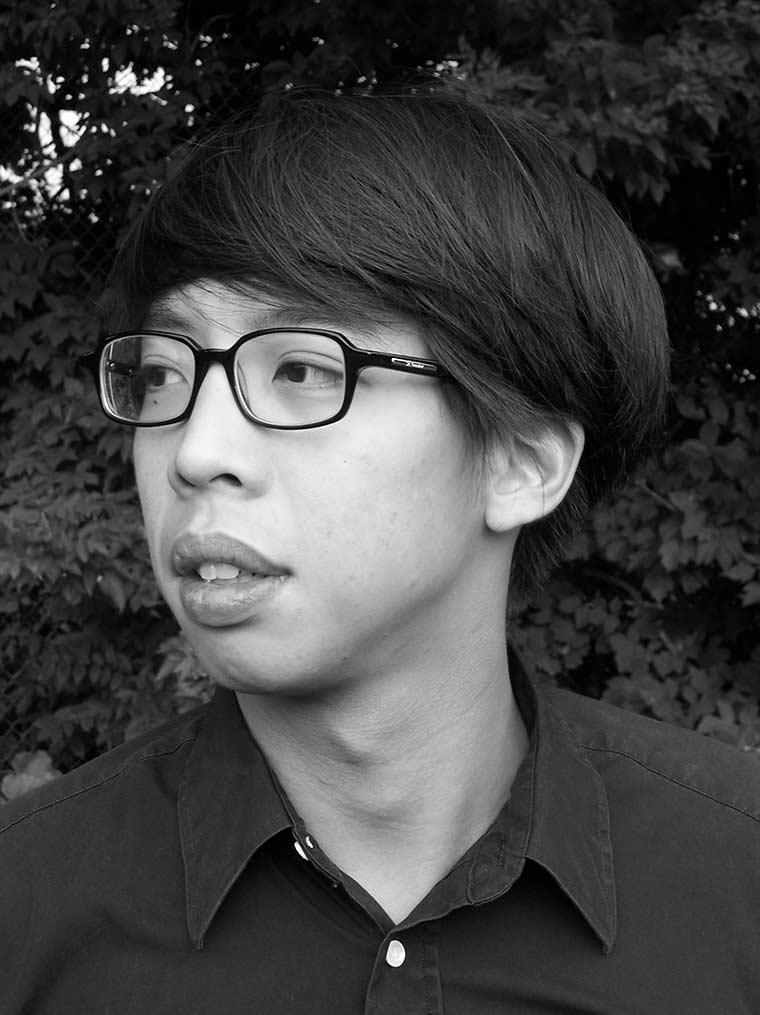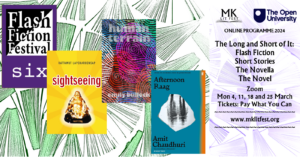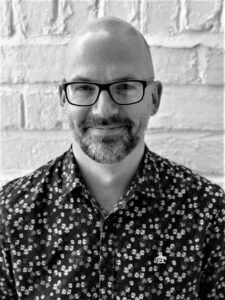Enter the world of Rattawut Lapcharoensap’s “Sightseeing” through Alistair Daniel’s insightful biography. Lapcharoensap’s debut collection, born from his upbringing in Thailand and Chicago, challenges Western perceptions with its nuanced portrayal of life in Bangkok’s margins. Daniel’s exploration unveils the enduring relevance of Lapcharoensap’s work, making this biography essential for literature lovers.
 Rereading can be a hazardous affair. There’s nothing more disappointing than returning to a book you once cherished only to find that you and it have fallen out of love. The characters seem wooden, the dialogue flat, the plot predictable (even allowing for the fact that you already know how it ends). Your love of this book, you realise, had more to do with you – with the age you were then, the situation you were in, the things that were preoccupying you – than with the book itself. So one of the great pleasures of rereading Rattawut Lapcharoensap’s short story collection Sightseeing has been discovering that the qualities I admired in it the first time are all still there: the precision of the writing, the beautifully constructed plots, the compelling narrators and, perhaps above all, the indelible images: Priscilla the Cambodian’s golden teeth, Anek with his face on fire, or Clint Eastwood, the narrator’s pet pig in ‘Farangs’, swimming desperately out to sea.
Rereading can be a hazardous affair. There’s nothing more disappointing than returning to a book you once cherished only to find that you and it have fallen out of love. The characters seem wooden, the dialogue flat, the plot predictable (even allowing for the fact that you already know how it ends). Your love of this book, you realise, had more to do with you – with the age you were then, the situation you were in, the things that were preoccupying you – than with the book itself. So one of the great pleasures of rereading Rattawut Lapcharoensap’s short story collection Sightseeing has been discovering that the qualities I admired in it the first time are all still there: the precision of the writing, the beautifully constructed plots, the compelling narrators and, perhaps above all, the indelible images: Priscilla the Cambodian’s golden teeth, Anek with his face on fire, or Clint Eastwood, the narrator’s pet pig in ‘Farangs’, swimming desperately out to sea.

Rattawut Lapcharoensap
Born in Chicago and raised in Thailand, Rattawut Lapcharoensap burst onto the literary scene, in the US and far beyond, in 2005 with his debut story collection, Sightseeing. Published when he was just 25, the collection delighted readers and critics alike with the freshness of its perspective and the maturity of its voice. ‘Sightseeing is not mere reportage, but storytelling of the highest quality, profoundly human and universal,’ wrote William Sutcliffe in The Guardian. ‘Every story in this collection is dense with event, emotion and meaning.’ It won the Asian American Literary Award and was a finalist for the Guardian First Book Award. In 2007 Lapcharoensap was named as one of Granta’s Best Young American Novelists.
One of the great strengths of Sightseeing is the way it turns Western clichés about Thailand on their heads. This is not the Thailand of tourist fantasy. Though ‘farangs’ – Thai slang for foreigners – certainly feature, in all their inevitable crassness and cultural insensitivity, the stories in Sightseeing are told mostly from the point of view of the Thai characters: children, troubled adolescents and their just-as-troubled parents, often living hardscrabble lives on the edges of Bangkok, or running a motel on a resort island choked with tourists, or scraping by in menial jobs.
 Lapcharoensap’s Thailand is a world dominated by gangster capitalists, a world in which the military runs a corrupt draft process, in which teenage girls work as prostitutes, in which whole neighbourhoods are falling into ruin; a world where drunk men conspire to burn down a refugee camp and rats rifle cheerfully through garbage. It’s a world the West has permeated in many ways, from tourism to films, even inveigling its way into the dreams and aspirations of the characters, though more often than not it only serves to disappoint (the eleven-year-old protagonist of ‘At the Café Lovely’, tasting his first American burger, is promptly sick). Yet it’s also a world of extraordinary beauty and human warmth, where two brothers can share a moment of tender solidarity on the back of a dilapidated motorbike, where a bicultural family can bond by playing bumper cars at their local Buddhist temple, and where, for one brief summer, two Thai boys and a Cambodian girl can make their own entertainment out of an empty swimming pool. A world where pigs can’t fly but they can swim.
Lapcharoensap’s Thailand is a world dominated by gangster capitalists, a world in which the military runs a corrupt draft process, in which teenage girls work as prostitutes, in which whole neighbourhoods are falling into ruin; a world where drunk men conspire to burn down a refugee camp and rats rifle cheerfully through garbage. It’s a world the West has permeated in many ways, from tourism to films, even inveigling its way into the dreams and aspirations of the characters, though more often than not it only serves to disappoint (the eleven-year-old protagonist of ‘At the Café Lovely’, tasting his first American burger, is promptly sick). Yet it’s also a world of extraordinary beauty and human warmth, where two brothers can share a moment of tender solidarity on the back of a dilapidated motorbike, where a bicultural family can bond by playing bumper cars at their local Buddhist temple, and where, for one brief summer, two Thai boys and a Cambodian girl can make their own entertainment out of an empty swimming pool. A world where pigs can’t fly but they can swim.
One aspect of Lapcharoensap’s work that’s always compelled me, both as reader and writer, is the narrative voice. While his protagonists are often children or adolescents, flawed, fallible, and – like the lovesick narrator of ‘Farangs’ – somewhat lacking in self-knowledge, it’s their grown, or older selves who tell the story, often writing long after events, with all the melancholy wisdom that comes with knowing how everything turned out. These first-person narratives should really be called first people narratives, since often what we get are two voices – the young protagonist and the older narrator – and the challenge of capturing both of these voices on the page – capturing, in short, a sense of personal identity and how it evolves – is one Lapcharoensap navigates with aplomb. I’ve no doubt that his facility for narrative voices has influenced my approach to my own – very different – narrator, Simon Pritchard, the protagonist of my novel, Montreal, which I’ve just completed as part of a PhD in creative writing at the Open University. And it’s this – and many other – qualities that give Lapcharoensap’s work the novelistic richness that makes it feel so vital. I can’t wait to hear him speak about his work, and I hope you’re as excited as I am.
Alistair Daniel is an Associate Lecturer in Creative Writing at the Open University. His short stories have been published in journals including The Missouri Review, Narrative, Litro, The Stinging Fly, The Irish Times and Stand, and he has held the Charles Pick Fellowship at the University of East Anglia. He has an MA in Creative and Life Writing from Goldsmiths College, University of London, and a PhD in Creative Writing from the Open University.


